Current News
/ArcaMax

Sen. Steve Daines of Montana announces surprise retirement
WASHINGTON — Montana Republican Steve Daines withdrew his Senate reelection paperwork Wednesday minutes before the deadline — and minutes after U.S. attorney Kurt Alme filed to run for the seat himself.
Daines’ decision appeared to catch most of Washington off guard, but he said he had been pondering it for some time.
“Serving the ...Read more

Minneapolis council members press chief on why police didn't do more during ICE surge
Several members of the Minneapolis City Council pressed Police Chief Brian O’Hara Wednesday on why police didn’t do more about the conduct of federal agents during the 12-week federal immigration surge.
The questions from the more-progressive council members came a day after Hennepin County Attorney Mary Moriarty suggested police officers ...Read more
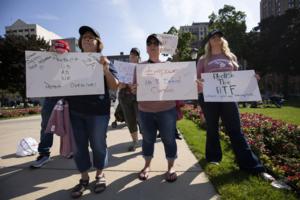
What constitutional carry would mean for Michigan gun owners
A group of Republican lawmakers wants to get rid of Michigan's law requiring residents to have a permit to carry a concealed pistol.
Legislation introduced this week in the GOP-controlled Michigan House would repeal the state's concealed pistol permit law, allowing residents to carry a handgun without any identification that they're permitted ...Read more
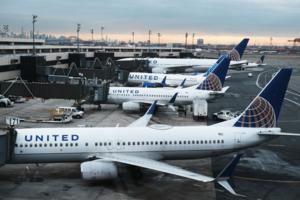
Military jets scrambled over false bomb threat on Newark flight
WASHINGTON — U.S. and Canadian military aircraft were sent to the skies in response to an ultimately unfounded security threat on a Scandinavian Airlines flight bound for Newark Liberty International Airport.
The military planes “monitored the airliner from a distance as it passed through Canadian and United States airspace” before the ...Read more

California mother convicted in alcohol-fueled teen party case involving sexual assaults
SAN JOSE, Calif. — A former Los Gatos mother accused of organizing alcohol-fueled teen parties that prosecutors said led to dangerous binge drinking and sexual assaults was found guilty Wednesday of 48 crimes encompassing child endangerment and sex offenses.
After a three-month trial, jurors convicted 51-year-old Shannon O’Connor of ...Read more

At Brooklyn trial, Trump death plot suspect says he went along with Iranian handler to protect family
NEW YORK — President Donald Trump’s accused would-be death-plot mastermind, Asif Merchant, told jurors Wednesday he expected to be caught by the feds, but claimed if he hadn’t gone along with the chilling scheme, it would have put his family in Iran in danger.
In a surprise move, the accused terrorist took the stand in his own defense at ...Read more
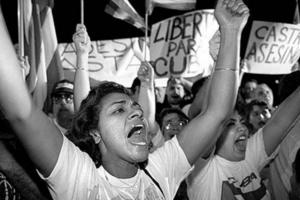
Florida reopens investigation of Raúl Castro for Brothers to the Rescue shootdown
MIAMI — Florida has reopened its criminal investigation into Raúl Castro over the 1996 shoot-down of two planes belonging to Brothers to the Rescue, a Miami-based volunteer group, Attorney General James Uthmeier said Wednesday.
Thirty years ago, Cuban MiG fighters shot down two single-engine planes belonging to Brothers to the Rescue and ...Read more
Colorado man dies in crash at intersection where he petitioned for traffic light after wife died there in 2024
A Colorado husband and wife died in crashes at the same Arapahoe County intersection two years apart, prompting renewed concerns for safety.
The husband rallied a group of community members to fight for a traffic signal at the intersection of East Belleview Avenue and South Franklin Street after his wife was fatally hit by a car in May 2024, ...Read more

Kentucky Sen. Rand Paul was only Republican to vote for a limit on Trump war powers in Iran
An effort spearheaded by Sen. Rand Paul to limit President Donald Trump’s abilities to keep waging war against Iran without congressional approval failed Wednesday evening.
Paul was the only Republican who voted to advance the resolution he sponsored alongside Democratic Virginia Sen. Tim Kaine. It failed 47-53.
“Americans want President ...Read more
Nonprofit vows to fight proposed California ban on sex offenders in public office
An advocacy group is threatening to file a lawsuit challenging a proposal to ban registered sex offenders from running for public office in California with the intent to block a Fresno City Council candidate’s campaign.
Spurred by the crowded District 7 race that includes Rene Campos, a registered sex offender, Assemblywoman Esmeralda Soria ...Read more

Tourist accused of bird-napping flamingo at iconic Las Vegas Strip resort
LAS VEGAS — A Canadian man faces animal cruelty charges after police accused him of breaking in to the flamingo habitat at the iconic Flamingo resort on the Las Vegas Strip early Tuesday morning, injuring birds and taking one back to his room.
Mitchell Fairbarn, 33, remained in custody as of Wednesday afternoon, according to jail records. He ...Read more

Federal judge blocks DeSantis from designating Muslim group 'terrorist organization'
A federal judge blocked Florida Gov. Ron DeSantis from labeling one of the largest Muslim civil rights groups in America as a ‘terrorist organization,’ saying that the move violates the group’s protected free speech and accusing the governor of choosing “political posturing over the First Amendment.”
The ruling comes nearly three ...Read more
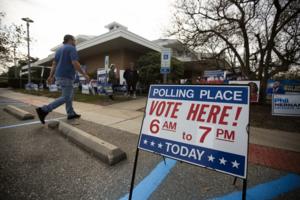
Virginia Supreme Court clears way for redistricting referendum
WASHINGTON — Virginia’s highest court stepped in Wednesday to let the commonwealth’s planned April redistricting referendum move forward.
The ruling from the Virginia Supreme Court paused a lower-court order that would have blocked the vote. It is the second time in as many months that the commonwealth Supreme Court has set aside a ruling...Read more

'Nazi heaven': Inside Miami campus Republicans' racist group chat
MIAMI — The secretary of Miami-Dade County’s Republican Party started a group chat primarily for conservative students last fall — and within three weeks it was filled with racist slurs, someone wrote dozens of ways of violently killing Black people and the chat was renamed after what one member described as “Nazi heaven.”
In WhatsApp...Read more

Whatley pledges federal 'Iryna's Law' in first event after NC GOP primary win
Michael Whatley said Wednesday his first act in Washington, D.C. if elected to the U.S. Senate would be introducing a federal version of “Iryna’s Law.”
Iryna’s Law is a North Carolina law named after Iryna Zarutska, a Ukrainian refugee killed on a Charlotte light rail train last year.
Speaking at the Fraternal Order of Police lodge in ...Read more
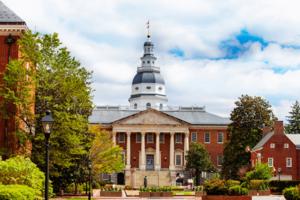
Watered-down juvenile auto-charging reform bill moves to full Senate vote
A scaled-back version of the Maryland bill to reduce auto-charging children in adult court and to house minors charged as adults in non-adult facilities is set to pass out of the State Senate on Friday. It marks the first time in 14 years that a version of the auto-charging reform made it out of committee in either chamber.
The Youth Charging ...Read more
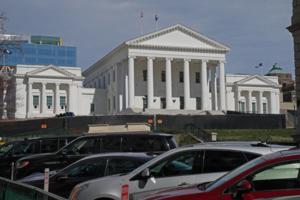
Lawsuit seeks to block Virginia's abortion referendum from November ballot
NORFOLK, Va. — Republicans unsuccessfully sought to block a redistricting referendum from going before Virginia voters next month by challenging the process used to get the issue on the ballot. Now, a conservative legal group is running a similar play in an attempt to block a constitutional amendment that would preserve abortion rights from ...Read more

AG, lawmakers clash over bill to limit ICE operations in Massachusetts
BOSTON — A State House hearing on a bill to ban ICE officers from making some civil arrests devolved into a partisan fight over protecting the public or illegal immigrants.
Lawmakers on the House Committee on Public Safety and Homeland Security heard testimony Wednesday at a forum on the Protect Act (H. 5158), filed by the Black and Latino ...Read more

Iran's Navy in crosshairs as US strikes warship with submarine
The Iranian warship IRIS Dena was in the Indian Ocean when a Los Angeles-class U.S. attack submarine fired an MK-48 torpedo, setting off a massive explosion that lifted the ship’s stern out of the water before sinking the vessel.
The U.S. Defense Department highlighted the attack — releasing black-and-white video footage that showed the USS...Read more

Trial for Tampa college student in newborn's death could hinge on experts
TAMPA, Fla. — When a jury is asked to decide whether Brianna Moore caused the death of her newborn daughter in a University of Tampa dormitory, their decision could come down to what medical and psychological experts say.
On the defense side are doctors who say the 19-year-old freshman was unaware she was pregnant until the morning she gave ...Read more
Popular Stories
- Mom found guilty of sex assault, child endangerment charges in California teen sex party trial
- Radio host Sid Rosenberg apologizes for bigoted rant against NYC Mayor Mamdani, claims it had 'nothing to do' with religion
- Close to 650 federal agents remain in Minnesota weeks after border czar announced end of operation
- Trump administration looking at repealing East Coast boat speed rule: 'Brutal blow to right whales'
- 'Fat-shaming' quiz questions prompt investigation of San Francisco high school teacher





